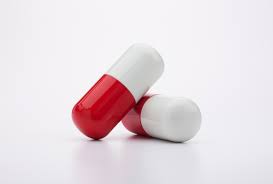pill
英 [pɪl]
美 [pɪl]
- n. 药丸;弹丸,子弹;口服避孕药
- vt. 把…制成丸剂;使服用药丸;抢劫,掠夺(古语)
- vi. 做成药丸;服药丸
- n. (Pill)人名;(英)皮尔
使用频率:

记忆方法
将“pill”的形状想象成一个圆润的小球,像我们平时看到的药片。通过视觉联想,将“pill”与“球”或“小药丸”相联系,帮助记忆其含义。
以上内容由AI生成, 仅供参考和借鉴
中文词源
pill 药丸,绒球
来自拉丁语pilula,药丸,来自pila,球,球体,-ula,小词后缀,可能来自pilus,头发,毛发,词源同pile,depilatory.词义可能是由毛发引申为发球,绒球,最后指球体,小球。
英语词源
- pill
-
pill: see pellet
- pill (n.)
- "small ball or round mass of medicine," c. 1400, from Middle Dutch or Middle Low German pille and Middle French pile, all from Latin pilula "pill," literally "little ball," diminutive of pila "a ball, playing ball," said to be related to pilus "hair" if the original notion was "hairball." Figurative sense "something disagreeable that must be swallowed" is from 1540s; slang meaning "boring person" is recorded from 1871. The pill "contraceptive pill" is from 1957.
- pill (v.)
- 1736, "to dose on pills," from pill (n.). From 1882 as "to form into pills." Related: Pilled; pilling.
权威例句
- 1. The pill is the most efficient method of birth control.
- 服用避孕药是最有效的避孕方法。
- 2. She had been on the pill for three years.
- 她吃口服避孕药已有3年。
- 3. It was at that time she started taking the contraceptive pill.
- 她就是从那个时候开始服用避孕药的。
- 4. The boy spat out the pill after eating off its sugar coating.
- 孩子吃掉药丸外面的糖,却把药吐了出来.
- 5. He paid the pill by cashing in some bonds.
- 他把一些证券兑换成现金付账.
